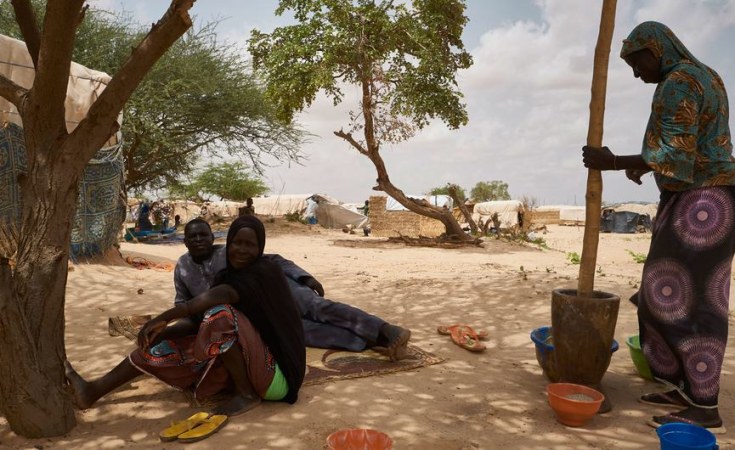Niamey, Niger/Washington — U.S. Secretary of State Antony Blinken visited Niger with a pledge of humanitarian assistance for displaced people and support for the country's efforts to combat violent extremism.
Residents in the capital city of Niamey interviewed by VOA had mostly positive things to say about the first visit by a U.S. secretary of state.
"We see how today the American military forces, which are on Nigerien territory, are training the defense and security forces," a woman in Niamey told VOA's French to Africa Service. But she said cooperation should not be limited to security.
"There are several cooperation opportunities in the context of climate change. There is also clean water, there are many things," she said.
Blinken used the trip to announce $150 million in new humanitarian assistance to help meet needs in Western and Central Africa and the Sahel region created by instability.
Beyond immediate assistance to refugees and other vulnerable groups, the United States is committing to investing in the long-term stability of the region, Blinken said.
The U.S. will assist in making "Niger's law enforcement more effective in combating terrorism, strengthening border security, enhancing counternarcotics capacity, stemming trafficking, and helping to investigate, prosecute and ultimately reduce terrorism and violent extremism," Blinken said during a joint news conference with his Nigerien counterpart in Niamey.
The United States has military personnel stationed at two air force bases in the country and has supported the Nigerien armed forces with training, equipment donations, and support for intelligence, surveillance and reconnaissance to combat violent extremism.
Another Niamey resident interviewed by VOA said the military equipment donations have been helpful, but urged political leaders to be cautious.
"Our leaders would have to be very vigilant with regard to the clauses of the contracts signed with these powers because, in reality, they have no friends," he said. "They only pursue their interests. Some may be greedier, pettier than others, but we have a duty to the youth, as a civil society to ask our leaders to be very clairvoyant."
Another person interviewed said she can see the impact of the U.S. involvement in the security situation.
"Well, on the Niger-America relations, it is visible and palpable and they helped us," she told VOA. "Regarding the insecurity and all that, that is really this case, we appreciate the relationship of the United States and Niger."
Niger is on the forefront of an escalating violence and fighting in the western Sahel, Joseph Siegle, director of research at the Africa Center for Strategic Studies said. The country experienced a 43% increase in violent events in 2022, but fatalities decreased by half, the ACSS said.
While neighboring Burkina Faso, Mali and Chad have experienced coups or political upheaval, Niger has maintained a functioning democracy.
"Niger is a linchpin right now towards stability in the Sahel and it has done significantly better than its neighbors. It has a more democratic government. Remember that in Mali and Burkina Faso, we've seen military coups, and so you have great governance turmoil in those countries," Siegle said.
"Niger is an island of stability in comparison. This is going to be critical towards reversing the instability trends that we've seen in the Sahel. And Niger has played a role in that regional effort to regain some stability for neighboring countries."
One Niamey resident was skeptical of Blinken's visit, bemoaning the inequality of the U.S.-Niger relationship.
"I say that it's a relationship of subordination because the United States, in general, has always held the top position since the end of World War II," he told VOA. "We can deal with you, but not as equals."
This story originated in VOA's French to Africa Service. VOA's Diplomatic Correspondent Cindy Saine contributed to the report.


